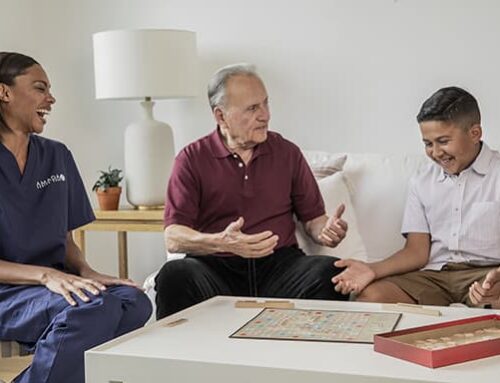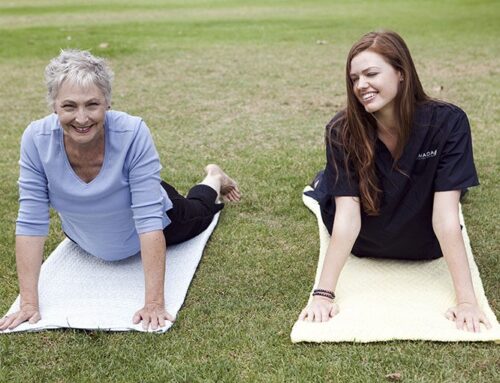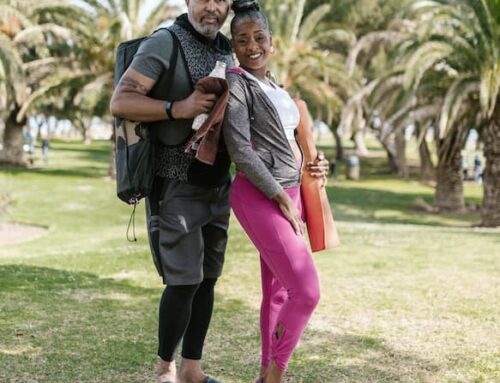September 21st is World Alzheimer’s Day. The important date was expanded in 2012 to designate all of September as World Alzheimer’s Month. Overall, it is an opportunity to raise awareness about a highly complex disease and challenge stigmas surrounding dementia. In the United States alone, the Alzheimer’s Association estimates 6.5 million people have Alzheimer’s disease, a number that is expected to increase each year with the aging Baby Boomer population. In fact by 2050, the number of people age 65 and older with Alzheimer’s is projected to reach 12.7 million.
Alzheimer’s is the seventh leading cause of death in the US and the most common form of dementia in older adults. World Alzheimer’s Month is a call to action for each of us to educate ourselves on how to take preventative steps, identify symptoms, and support loved ones who have been diagnosed.
Assessing Care Needs for a Senior Diagnosed with Alzheimer’s
Christy Babcock, who, with husband Patrick, owns Amada Senior Care Los Angeles and Pasadena, tells of a longtime client with advanced Alzheimer’s. Unfortunately, her caregiver of many years needed to move on, and with other caregivers sent in, the client reacted with agitation and even violence, clinging to her husband. Care coordinator Fabiola paid a visit to the couple and interviewed the husband, learning that music had been an integral part of the wife’s life before she got sick. When Fabi began to sing to her, everything changed.
“From that point on, we knew we’d found the key to her letting us take care of her,” Babcock says. “It’s so important to figure out a senior’s needs. Everyone has a past, and even if they can no longer communicate about it, taking the time to explore it through family members gives the caregiver something else to talk about with the client besides daily needs.”
Caring for a Senior Diagnosed with Dementia or Alzheimer’s
“Understanding, patience, training, and certification” are among the components that need to go into a top-tier Alzheimer’s and dementia caregiver,” says Dell Gray, a medical device sales representative who cared for his own mother-in-law throughout the progression of the disease. “Caregivers need to be on top of what the disease looks like from early stage to end stage and know how to address these changes.”
Knowing Alzheimer’s Early Warning Signs
Identifying the symptoms of Alzheimer’s disease early on will allow the patient to try different treatments that boost brain cells and improve symptoms like memory loss and reasoning skills. Although there is no cure for Alzheimer’s yet, researchers are getting close; recent studies have revealed more about Alzheimer’s possible causes and clinical trials are underway using drugs that could not only prevent the disease, but reverse the symptoms. The following is a list of ten warning signs from the Alzheimer’s Association:
- Memory loss that disrupts daily life
- Challenges in planning or solving problems
- Difficulty completing familiar tasks at home, at work, or at leisure
- Confusion with time or place
- Trouble understanding visual images and spatial relationships
- New problems with words in speaking or writing
- Misplacing things and losing the ability to retrace steps
- Decreased or poor judgement
- Withdrawal from work or social activities
- Changes in mood and personality
If you notice that you or a loved one are exhibiting one or more of these symptoms, make an appointment to see a doctor. An early diagnosis provides time to plan future care options and seek out support services. You are invited to reach out to an Amada Senior Care advisor to learn more about the special training Amada caregivers receive to help manage the symptoms of Alzheimer’s and dementia patients. This can positively impact the senior’s quality of life and support the family as well.
Fundraising for Care, Support and Research
Alzheimer’s is a costly disease. Besides making a donation, there are several other ways to raise funds to further the research toward finding a cure. The Alzheimer’s Association sponsors both the Walk to End Alzheimer’s and The Longest Day. More than 600 communities across the U.S. hold an annual Walk to End Alzheimer’s between now and November. Or plan now to participate in The Longest Day, a team event held annually on the summer solstice (June 21st) which is the longest day of the year. Teams can choose an activity to participate in from sunrise to sunset.
Becoming an Advocate for Alzheimer’s Patients
Alzheimer’s is among the world’s most critical health issues – one that needs further research funds and public policies in place. To learn more about how you can become involved and advocate for increased funding for Alzheimer’s and dementia research, visit the Alzheimer’s Association Resource Center.
“World Alzheimer’s Month a Call to Support Older Adults with Dementia,” written by Beth Herman, Amada blog contributor.



